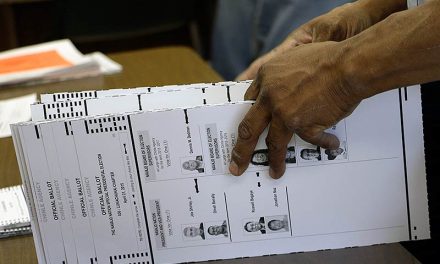
Unknowns surround Omicron variant, now in US
WINDOW ROCK
Just when many were trying to catch a bit of respite over the Thanksgiving holiday, on “Black Friday” the World Health Organization designated the COVID-19 “Omicron” a “variant of concern.”
The new variant has more than 30 mutations in the spike protein region that could alter the course the virus.
Amidst the current Delta variant surge, the announcement of the Omicron variant stoked fears, rattled financial markets and prompted countries to ban travel from South Africa, where Omicron originated.
On Wednesday, the United States confirmed its first case of Omicron in California in an individual who had returned to San Francisco from travel in South Africa.
The biggest concerns associated with the number of mutations affecting the spike, which the virus uses to penetrate and infect human cells, are that they could make Omicron more transmissible and/or more likely to evade immunity, possibly rendering current vaccines less effective.
“Given mutations that may confer immune escape potential and possibly transmissibility advantage, the likelihood of potential further spread of Omicron at the global level is high,” WHO stated, adding that the overall global risk related to Omicron is “very high.”
Scientists around the world have expressed the “unknowns” and “uncertainties” that surround the new variant and what its impacts will be will take weeks to resolve as they work around the clock to collect data.
“We believe this virus is highly infectious,” Moderna CEO Stéphane Bancel said in a CNBC interview on Tuesday. “We need to get more data to confirm this, but it seems to be much more infectious than Delta, which, of course, is problematic.”
WHO said multiple studies are underway to evaluate the transmissibility, severity of disease, reinfection risk and vaccination efficacy of Omicron.
Depending on the results, if another surge of COVID-19 takes place driven by Omicron, consequences “may be severe,” stated WHO.
However, at Tuesday’s White House Coronavirus Task Force briefing, Dr. Anthony Fauci said pending data and results, the effect of this variant on transmission, severity of disease, and how well current vaccines treatments work, “remains speculative.”
Concern, not ‘panic’
One thing that does seem clear is that the COVID-19 pandemic is not over and that recovery is fleeting.
By Tuesday, the Omicron had been identified in multiple countries including Japan, Australia, Canada, Hong Kong, Israel, the United Kingdom and several European countries.
“I believe most countries that have direct flights from South Africa in the last seven to 10 days, already have cases in their country that they might not be aware of,” said Bancel.
Over the weekend, Fauci indicated to multiple news outlets that he would not be surprised if the variant was already circulating in the United States.
“We have not detected it yet, but when you have a virus that is showing this degree of transmissibility and you’re already having travel-related cases that they’ve been noted in Israel and Belgium and in other places… it almost invariably is ultimately going to go essentially all over,” he told CNN.
CDC Director Rochelle Walensky said the agency is continuously monitoring variants and currently the Delta variant remains the predominant circulating strain representing 99.9% of all sequences sampled.
As a precautionary measure, President Joe Biden ordered air travel restrictions from South Africa and seven other countries and tightened up testing protocols for incoming flights to the U.S.
“Sooner or later, we’re going to see cases of this new variant here in the United States,” Biden said in a White House Press briefing on Monday. “We’ll have to face this new threat just as we’ve faced those that have come before it.”
However, Biden stressed the variant was cause for “concern,” not “panic,” and used the opportunity to encourage everyone to get fully vaccinated and boosters, wear masks indoors in public spaces.
He said the new variant illustrates that the pandemic will not end until we have global vaccinations.
“To beat the pandemic, we have to vaccinate the world as well and America is leading that effort,” said Biden.
Biden confirmed there would be no shutdowns and lockdowns in the U.S. this time around and if vaccines need to be updated, his administration will work to expedite and deploy those.
‘Rational’ response
On Tuesday, WHO chief Tedros Adhanom Ghebreyesus took a measured approach, calling for countries to keep calm and take “rational, proportional risk-reduction measures” in response to the new coronavirus strain.
“We still have more questions than answers about the effect of Omicron on transmission, severity of disease, and the effectiveness of tests, therapeutics and vaccines,” he said.
Despite all of the uncertainties surrounding Omicron, however, the WHO said it is reasonable to assume that currently available vaccines offer “some” protection against severe disease and death.
Fauci also said that although partial immune escape may occur with Omicron, vaccines, – and particularly boosters – give a level of antibody that offer a degree of cross protection to variants, particularly against severe disease.
WHO recommended countries conduct enhanced surveillance and genomic sequencing to better understand the new variant, accelerate COVID-19 vaccination coverage, and promote the use of masks, physical distancing, ventilation of indoor space, crowd avoidance, and hand hygiene.
Vaccine makers vowed to adapt vaccines to accommodate Omicron’s mutations to the spike protein as necessary.
Moderna’s Bancel said the company has already been anticipating variant mutations and will rapidly advance an Omicron specific booster candidate if that is what is required.
Bancel believes more should be known about the impact of the new variant on vaccine efficacy in a couple of weeks but predicted that given omicron’s large number of mutations it is highly probable that the efficacy of all of the current vaccines will diminish.
“We anticipate that there will be a loss of vaccine efficacy to prevent disease,” he said.
As to the virulence of the variant and whether it will cause more serious illness, he said it’s “impossible to know” at this moment and could take up to six weeks to learn more.
Pfizer CEO Albert Bourla told CNBC that his company also is preparing to address new variants, including Omicron, and is confident that Pfizer’s new antiviral COVID-19 treatment pill, Paxlovid, will be effective against them, helping COVID-19 patients avoid serious illness or death.
‘Can’t predict the future’
Walensky said the virus is “unpredictable” and medical experts must be ready to be proactive as new data, new science, and new variants evolve.
“One thing has become clear over the last 20 months – we cannot predict the future, but we can be prepared for it,” she said.
Meanwhile, the CDC is further strengthening its recommendation on booster shots.
As of Nov. 17, 58% of the U.S. population was fully vaccinated. But only 16% of those vaccinated had received booster shots.
“Everyone ages 18 and older should get a booster shot either when they are six months after their initial Pfizer or Moderna series or two months after their initial J&J vaccine,” said Walensky.
She said the recent emergence of the Omicron variant further emphasizes the importance of vaccination, boosters, and re enforcing prevention efforts needed to protect against COVID-19.
“Early data from South Africa suggest increased transmissibility of the Omicron variant, and scientists in the United States and around the world are urgently examining vaccine effectiveness related to this variant,” said Walensky.
However, Walensky still anticipates that current vaccine protection, at least in part, will be beneficial against Omicron.
“We don’t know everything we need to know yet about the Omicron variant, but we know that vaccination is a safe and effective way to protect yourself from severe illness and complications from all known SARS-CoV- 2 variants to date,” she said.
As a public service, the Navajo Times is making all coverage of the coronavirus pandemic fully available on its website. Please support the Times by subscribing.
How to protect yourself and others.
Why masks work. Which masks are best.
Resources for coronavirus assistance








 Highway 264,
Highway 264, I-40, WB @ Winslow
I-40, WB @ Winslow